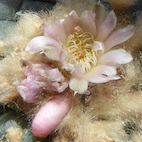Over the past few years, fentanyl has claimed many lives in the US and elsewhere. Concerningly, many other drugs such as methamphetamine, cocaine, MDMA and even cannabis oils have been adulterated with synthetic opioids like fentanyl, leading to accidental overdoses and deaths.
Fentanyl has never been as big of a problem in Australia as it has been in the US. However, nitazenes have been seized in increasing amounts in the UK and Australia. Recently, 4 people died of opioid overdoses in Melbourne taking cocaine adulterated with nitazenes. I fear this issue will escalate in Australia and we may see a similar situation with nitazenes here as we have seen with fentanyl in the US.
At some point, someone is deliberately mixing cocaine or other drugs with nitazenes or fentanyl. Resultingly, people who may be opioid-naïve and were expecting to take cocaine or meth end up dying of an overdose.
I'm curious why this is happening and what these people stand to gain from doing this. Are they trying to get customers addicted to opioids?
If people die in this way surely it prompts an investigation, I don't know how the scumbags doing this are benefitting from it.
Rare
Rare
Rare
Rare
Rare





